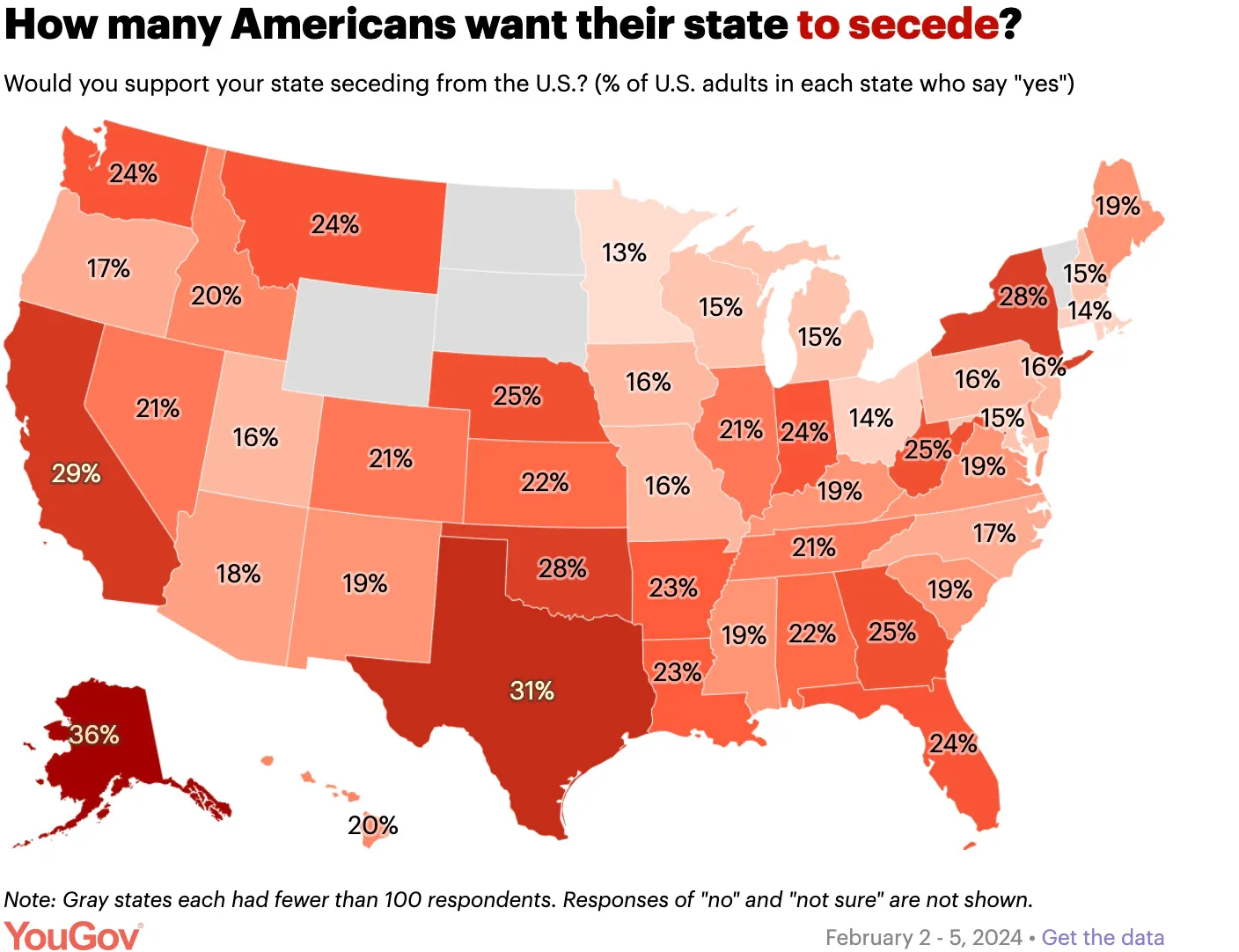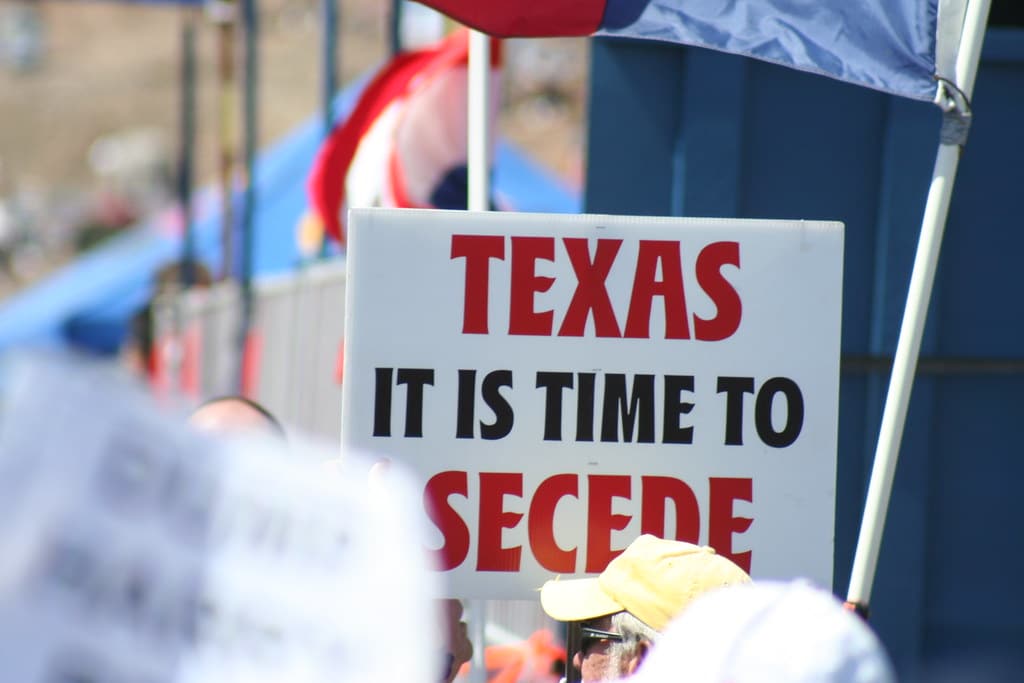Secessionist inclinations are on the rise in the United States, and are sure to intensify after Nov. 5 regardless of which party prevails. When that happens, you can expect the accompanying discourse will be peppered with assertions that states have no right to secede, with many declaring the question was “settled” by the Civil War.
The embedded contention that legal and moral questions are rightly and permanently settled by the outcome of a mass-murder contest is absurd on its face. However, the notion is so widely and casually embraced that it invites an emphatic response. It also serves as a starting point to address other flawed forms of secession skepticism.
Written by a socialist in 1892, the Pledge of Allegiance attempts to program Americans into internalizing a falsehood: that the United States is “one nation, indivisible.” On that score at least, the deeply-flawed pledge isn’t working on a large number of citizens.
A YouGov poll taken earlier this year found substantial slices of both major parties would support their state’s departure from the union: 29% of Republicans and 21% of Democrats. Similarly, the five states in which secessionist yearning is highest represent a mixed bag of red and blue: Alaska (36%), Texas (31%), California (29%), New York (28%) and Oklahoma (28%). While 23% of all Americans want their state to secede, 28% would be content if other states did so.

For now, the Lone Star State seemingly has the strongest separatist momentum. In a June victory for the Texas Nationalist Movement, the Republican Party of Texas adopted platform planks proclaiming the state’s right to secede, and urging the legislature to arrange a state referendum question on the issue in the next general election. Many other states have secession movements of their own, and this July alone saw the launch of Free Louisiana and NHEXIT Now, the latter representing a rebranded drive for an independent New Hampshire.
It’s only natural that secession interest would be highest in some of the reddest and bluest states, where citizens have the most to lose via the imposition of centralized federal dictates that emphatically clash with local preferences. Those anxieties over which party governs Washington, and the animosity between the two principal opposing camps, will only grow as Election Day nears and could skyrocket after the votes are counted.
It shouldn’t be that way: As I wrote in January here at Stark Realities, “the intensity of our division springs from a federal government operating far beyond the limits of the Constitution — fueling a fight for control over powers that were never supposed to exist at the national level.” Sadly, that dynamic isn’t going to change anytime soon, which means secessionist impulses are sure to ratchet up when the returns pour in on Nov. 5. The only question is whether that ratcheting will be strongest in blue or red states.
Either way, you’re sure to hear plenty of social media users, TV pundits and purported experts proclaiming that the question of whether states have the right to leave the union was “solved by the Civil War” — meaning that, since the seceding states’ armies were defeated, the answer is a firm “no.”
As the Mises Institute’s Ryan McMaken wrote in Breaking Away: The Case for Secession, Radical Decentralization and Smaller Polities, “Those who invoke this phrase…are signaling that they believe any attempt at secession justifies military invasion and occupation of separatist territories.” No reasonable person would apply that blanket proscription on foreign peoples, so it’s all the more strange to see Americans apply it to their fellow citizens — particularly when you consider that America is itself the product of secession.
































